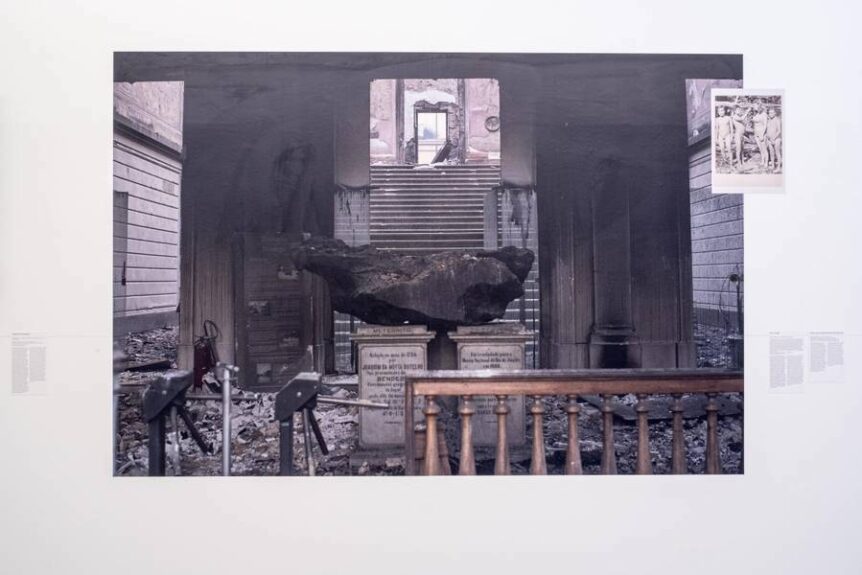From Mutual Exposure to Cracks: For an Ethics of Exchanges in Curatorial Practices
Online Course on Contemporary Curating
From Mutual Exposure to Cracks: For an Ethics of Exchanges in Curatorial Practices
Lecturers: Lisette Lagnado and Agustín Pérez Rubio
Course dates: 25 September + 2 October 2021, 2–6pm (CEST)
Enrol here until 17 September 2021
What is at stake when an international art event decides to make its construction slowly visible to the public and starts from a more locally orientated scale? This short course aims to interrogate the machinery of global exhibitions and advocates for the development of projects based on sustainable and contextual practices.
Since the 1990s, public and residency programmes have been carried out in conjunction with art events. The lecturers will revisit already implemented activities (in biennials, documenta, Manifesta, Assembly, among others) to more thoroughly examine the case of the 11th Berlin Biennale, which took place in the ExRotaprint space in Wedding (September 2019-November 2020), before and during the pandemic of Covid-19.
Taking that edition as a backdrop, from its inception to the so-called “epilogue” exhibition, historical and conceptual inputs will be approached through cultural, educational, and management aspects. The questions raised will unfold the stages of a process-based biennial over a one-year period, and scrutinize ways to intertwine one’s baggage/experience with site-specific collective knowledge. For example, what are the basic tools needed to repel gentrification when presenting an artistic project in a district constituted by immigrants? Or how to involve audiences in a learning platform to introduce decolonising issues from the Global South in a city like Berlin? Topics such as migration, racism, feminist archive, politics of care, non-extractivist methods, alongside protection measures due to Covid-19, went hand in hand with the integration of that biennial within the social and urban fabric of its neighbourhood.
Finally, the debate is intended to provide greater awareness of the dangers behind a neoliberalist regime, eager for the consumption of spectacles, and to help define curatorial strategies in which the respect for the ecosystem of the context is able to nurture another ethics of exchanges and togetherness.
……………
Lisette Lagnado (b. 1961, Kinshasa) is a researcher, art critic, and independent curator, holding a Master in Communication and Semiotics from the Pontifícia Universidade Católica de São Paulo (PUC-SP) and a PhD in Philosophy from the Universidade de São Paulo (USP). She was chief curator of the 27th Bienal de São Paulo (2005-2006), Drifts and Derivations: Experiences, Journeys and Morphologies (Museo Nacional Centro de Arte Reina Sofía, Madrid, 2010), and co-curator of the 11th Berlin Biennale (2019-2020), among other exhibitions. Lagnado co-founded the estate Projeto Leonilson and coordinated the Programa Hélio Oiticica(Instituto Itaú Cultural), both initiatives based on an artist’s archive. From 2014 until 2017, she assumed the direction and public programmes of the Escola de Artes Visuais do Parque Lage in Rio de Janeiro. Currently a member of the Associação Cultural Videobrasil, São Paulo, Lagnado is conducting a research project on De-Colonization and Museums (Goethe Institut, Rio de Janeiro) and has a teaching position at the Art and Design Department of the Hochschule für Künste, University of the Arts, Bremen (summer semester 2021).
Agustín Pérez Rubio (b. 1972, Valencia) is a historian, teacher, and researcher with extensive curatorial work in museums and institutions in Latin America and Europe. Currently, he is interested in researching decolonial strategies, both in the field of museums and sex-dissident practices based on feminist and queer/cuir theory, within art. He was co-curator of the 11th Berlin Biennale (2019-20), and, previously, of the Chile Pavilion for the 58th Venice Biennale with the project by artist Voluspa Jarpa (2019). He was artistic director of MALBA (Buenos Aires, 2014-18), chief curator and director of MUSAC (León, 2003-13), and member of the Board of CIMAM and the Istanbul Biennial (2017-22). He was recently distinguished as a visiting professor at the Institut für Kunst im Kontext (Universität der Künste Berlin, 2019-20), in addition to teaching at other universities and art research centres.
……………
Image credit: Léo Corrêa, “A meteorite on exhibit is seen inside the entrance of the National Museum after an overnight fire in Rio de Janeiro, Brazil, Monday, Sept. 3, 2018. Firefighters dug through the burned-out hulk of Brazil’s National Museum on Monday, a day after fire gutted the building, as the country mourned the irreplaceable treasures lost and pointed fingers over who was to blame.” 3 Sept. 2018. Installation view, exp. 1: The Bones of the World, 11th Berlin Biennale c/o ExRotaprint, 7.9.–9.11.2019. Photo: Mathias Völzke.
–––––––––––––––
The Online Courses on Contemporary Curating are offered by the Postgraduate Programme in Curating, Continuing Education, Zurich University of the Arts.
In collaborations with Oncurating.org.
Please find detailed information for all courses here:
www.curating.org/new-online-courses

